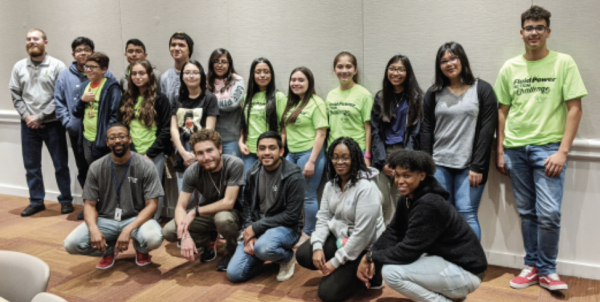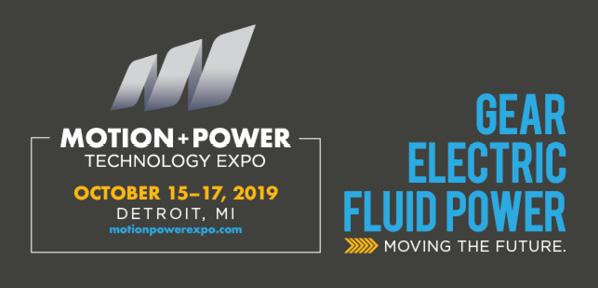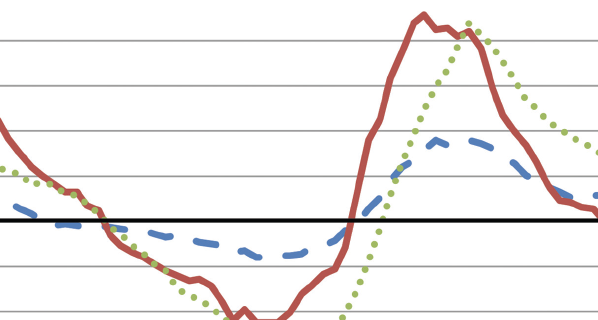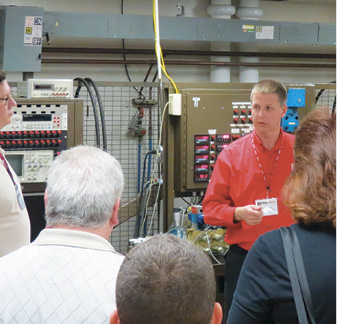Fluid Power Research Aligned With NFPA Technology Roadmap
 By Eric Lanke, NFPA President/CEO
By Eric Lanke, NFPA President/CEO
I recently had the pleasure of attending the October 2019 Summit of the Center for Compact and Efficient Fluid Power (CEEFP) on the campus of the University of Wisconsin – Madison. Twice a year, the CCEFP puts on one of these summits to present its ongoing fluid power research projects and to facilitate interactions between its academic faculty, graduate students, and industry supporters.
The NFPA Foundation has provided research supplement grants to many of the researchers so they can attend and present at these summits, and this one was no exception. All 11 of this year’s supplement recipients presented at the summit. It gave me an ideal opportunity to align their projects with the research objectives identified on our recently updated Technology Roadmap for the Fluid Power Industry. Doing so helped me better understand which parts of the broad pre-competitive research agenda that our Roadmap describes are being addressed by our growing research coalition. During the summit, I saw projects presented that were clearly targeted at the following Roadmap objectives:
IMPROVING FLUID POWER’S RELIABILITY AND DURABILITY
Objective: Improve surface finish properties for advanced reliability and durability of fluid power components
Projects:
“Novel Coatings for Advanced Fluid Power Systems,” Osman Levent Eryilmaz, Argonne National Lab
INCREASING FLUID POWER’S ENERGY EFFICIENCY
Objective: Increase energy conversion efficiency in fluid power systems
Projects:
“Seamless Electric to Hydraulic Conversion,” Eric Severson, U of Wisconsin-Madison, and Jim Van de Ven, U of Minnesota
“Modeling and Optimization of Trajectory-Based HCCI Combustion,” Zongxuan Sun, U of Minnesota
Objective: Develop more energy-efficient fluid power system architectures
Projects:
“Individual Electro-Hydraulic Actuators for Off-road Machines,” Andrea Vacca, Purdue
“Hybrid Hydraulic-Electric Architecture for Mobile Machines,” Perry Li, U of Minnesota
Objective: Reduce energy consumption of current system architectures
Projects:
“Polymer-Enhanced Fluid Effects on Mechanical Efficiency of Hydraulic Pumps,” Paul Michael, MSOE and Ashlie Martini, UCA-Merced
“Additives (VIIs) and Base Fluid Design for Enhanced Mechanical Efficiency of Hydraulic Fluids,” Lelia Cosimbescu, Pacific Northwest Lab
Objective: Improve energy recovery methods in fluid power systems
Projects:
“Increasing the Efficiency of Wind Turbines through Understanding of their Transient Responses,” Kim Stelson, U of Minnesota
Objective: Develop new or improved fluid power components
Projects:
“Efficient, Compact, and Smooth Variable Propulsion Motor,” Jim Van de Ven, U of Minnesota
“High Efficiency Hydraulic Pump/Motors Employing Partial Stroke Piston Pressurization (PSPP),” Tom Chase, U of Minnesota
Objective: Improve energy storage capabilities of fluid power components and systems
Projects:
“Distributed Compact Hydraulic Regenerative Braking for Heavy Duty Transport Vehicles,” Jose Garcia, Purdue
INCREASING FLUID POWER’S POWER DENSITY
Objective: Integrate component functions/refine system architectures
Projects:
“Hydraulic Ankle Foot Orthosis for the Prescription of Orthoses for Children with Cerebral Palsy,” Will Durfee, U of Minnesota
“High Performance Piezoelectric Pneumatic Proportional Valve,” Tom Chase, U of Minnesota
REDUCING THE ENVIRONMENTAL IMPACT OF FLUID POWER COMPONENTS AND SYSTEMS
Objective: Eliminate external leakage in fluid power components and systems
Projects:
“Dynamics of Rolling Friction in Soft-Rigid Interface,” Michael Varenberg, Georgia Tech
Objective: Lower environmental impact of fluid power components and systems
Projects:
“Overview of ORNL’s Combustion Portfolio Relevant to Fluid Power,” Jim Szybist, Oak Ridge National Lab
Any NFPA member interested in learning more about any of these projects should contact me at elanke@nfpa.com or (414) 778-3351. I’d be happy to share the PowerPoint presentation from the projects that piqued your interest and/or help connect you with the researchers working on the appropriate advancement.
It was great to see so much alignment with the pre-competitive research objectives identified by our industry.





